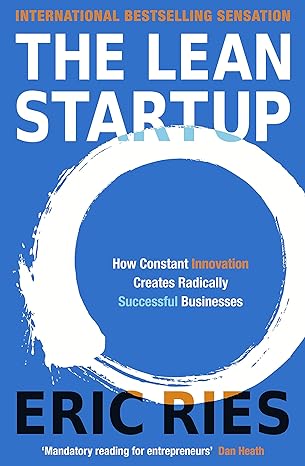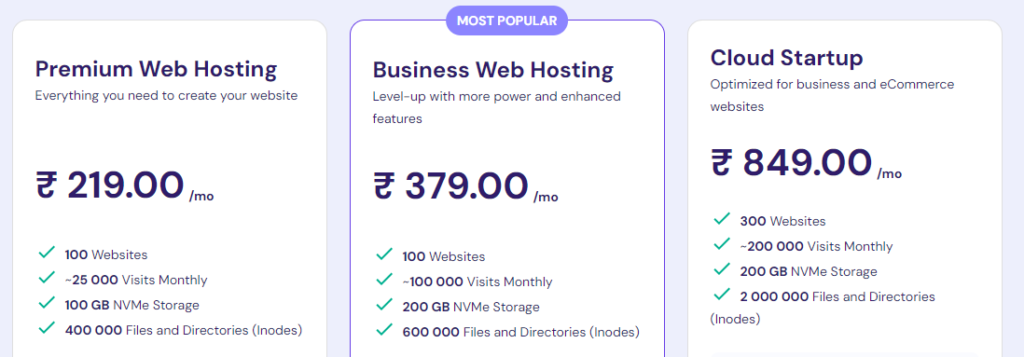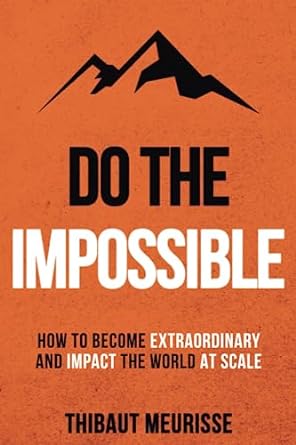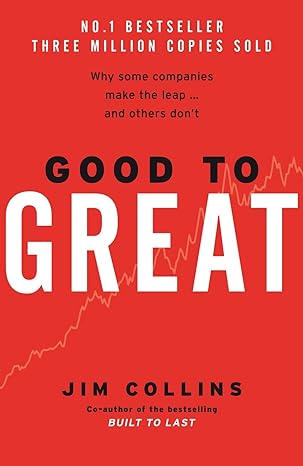The Lean Startup by Eric Ries revolutionizes the way businesses approach innovation and growth. It introduces a methodology centered on rapid experimentation, validated learning, and a focus on customer feedback. The book guides entrepreneurs in creating successful startups by minimizing waste, quickly iterating on ideas, and making data-driven decisions. With its core principles like the Build-Measure-Learn feedback loop, Minimum Viable Product (MVP), and the concept of pivoting, The Lean Startup offers a blueprint for building sustainable businesses in today’s fast-paced, uncertain market.

Here are 25 key lessons from “The Lean Startup” by Eric Ries:
1. Validated Learning: Focus on learning what customers actually want through experimentation and iteration rather than relying on assumptions.
2. Build-Measure-Learn: The core feedback loop involves building a product, measuring how it performs, and learning from the results to guide future development.
3. Minimum Viable Product (MVP): Create the simplest version of your product that allows you to start the learning process as quickly as possible.
4. Pivot or Persevere: Regularly assess whether your strategy is working and decide whether to pivot to a new approach or persevere with your current one.
5. Innovation Accounting: Track progress using metrics that matter, rather than traditional vanity metrics like revenue or user numbers.
6. Actionable Metrics vs. Vanity Metrics: Focus on metrics that lead to informed decisions and clear actions rather than those that make you feel good but offer no real insight.
7. Continuous Deployment: Release small updates frequently to get continuous feedback from users, reducing the risk of major issues and allowing for rapid iteration.
8. Split Testing (A/B Testing): Test different versions of your product to see which one performs better, helping to optimize the product based on data.
9. Customer Development: Engage with customers early and often to understand their needs and ensure that you’re building something they will actually use.
10. Five Whys: Ask “Why?” five times when encountering a problem to identify the root cause rather than just addressing symptoms.
11. Lean Thinking: Eliminate waste by focusing only on activities that create value for the customer.
12. Validated Hypotheses: Use experiments to validate your business assumptions rather than assuming you know what will work.
13. Early Adopters: Target early adopters who are more likely to give you honest feedback and tolerate an unfinished product.
14. Small Batches: Work in small batches to reduce waste and increase efficiency in the development process.
15. Entrepreneurial Management: Apply entrepreneurial principles within large organizations to foster innovation and adaptability.
16. Pivot Types: Understand different types of pivots (e.g., zoom-in, zoom-out, customer segment, etc.) to make strategic changes when necessary.
17. Sustainable Growth: Focus on sustainable growth that comes from acquiring new customers through existing users rather than through expensive marketing campaigns.
18. Cohort Analysis: Analyze user behavior over time, grouped by different cohorts, to understand how your product is improving or failing.
19. Continuous Innovation: Encourage a culture of continuous innovation where employees are empowered to experiment and learn from failures.
20. Learning from Failure: Treat failures as opportunities to learn and improve, rather than as setbacks.
21. Rapid Prototyping: Quickly build prototypes to test ideas and gather feedback, allowing you to iterate rapidly.
22. Build a Sustainable Business: Focus on creating a business model that is sustainable over the long term, rather than just achieving short-term success.
23. Customer-Centric Approach: Keep the customer at the center of your decision-making process, ensuring that you’re building something they need and want.
24. Adaptability: Be willing to adapt your strategy based on what you learn, rather than sticking rigidly to your original plan.
25. Experimentation Culture: Foster a culture where experimentation is encouraged, and decisions are based on evidence rather than opinions.
These lessons are foundational to the Lean Startup methodology, emphasizing agility, customer feedback, and continuous improvement.
https://hostinger.in?REFERRALCODE=1SWATI68




This is very relevant to my work.